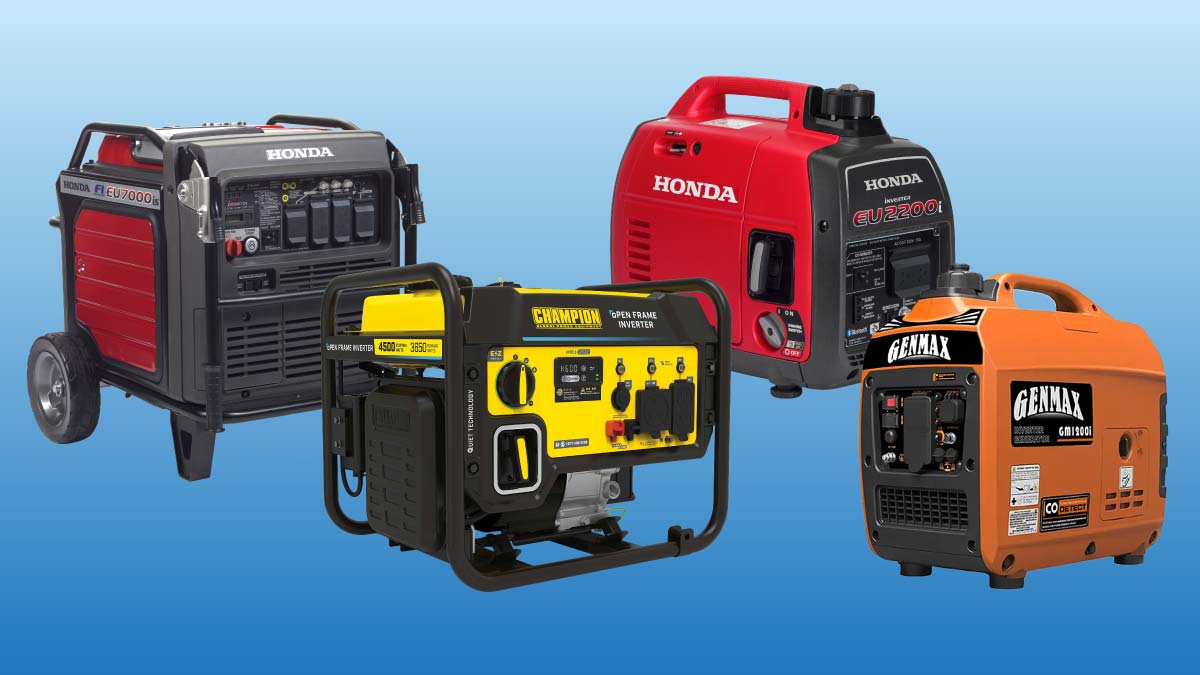Power outages across the United States have increased by 64% in the past decade, leaving millions of homeowners vulnerable to disruptions in their daily lives. During these blackouts, families face spoiled food, interrupted medical devices, and the inability to work remotely. As climate change intensifies extreme weather events, many are asking: can hybrid inverter generators effectively power their essential home needs? These innovative power solutions combine traditional fuel generation with advanced battery storage and pure sine wave inverter technology, offering improved efficiency and clean power output suitable for sensitive electronics. Unlike conventional generators, hybrid models provide seamless backup power while potentially reducing fuel consumption and maintenance costs. This article examines the real-world capabilities of hybrid inverter generators for powering critical home appliances, explores their technological advantages, and provides practical guidance for implementing these systems in your home backup power strategy.
Understanding Hybrid Inverter Generator Technology
Hybrid inverter generators represent a significant evolution from traditional portable generators, combining the reliability of fuel-based power with advanced battery storage technology. Unlike conventional generators that directly convert mechanical energy to electricity, hybrid systems integrate a sophisticated dual-power mechanism. The system seamlessly switches between fuel-generated power and stored battery energy, optimizing efficiency while maintaining consistent output. At the heart of these systems lies inverter technology, which converts DC power to clean AC power through advanced wave manipulation. This process produces pure sine wave electricity with Total Harmonic Distortion (THD) levels below 2%, making it safe for sensitive electronics like smartphones, laptops, and medical equipment.
The “power station” concept integrates multiple components: a fuel-efficient engine, high-capacity lithium batteries, an advanced inverter module, and smart control systems. These elements work in concert to deliver stable, clean power while maximizing fuel efficiency. The system’s intelligent power management continuously monitors power demand, automatically adjusting output to match actual needs, thereby reducing fuel consumption and wear on mechanical components.
Critical Benefits for Homeowners’ Power Needs
Reliability During Outages
When grid power fails, hybrid inverter generators provide unparalleled reliability through sophisticated automatic transfer switching. Within milliseconds of detecting an outage, these systems seamlessly transition to backup power, eliminating the disruption of manual startup procedures common with traditional generators. During a recent five-day outage in coastal Florida, homeowners reported continuous power delivery through hybrid systems, maintaining essential services without interruption. The dual-power architecture significantly reduces mechanical strain, resulting in 60% fewer maintenance requirements compared to conventional generators.
Efficiency and Cost Savings
Hybrid systems achieve remarkable fuel efficiency through intelligent load detection and power optimization. When demand is low, the system primarily relies on battery power, activating fuel generation only when necessary. This smart management typically reduces fuel consumption by 30-40% compared to traditional generators. The advanced power management system continuously monitors energy usage patterns, adjusting output to match actual needs and preventing wasteful fuel consumption during low-demand periods.
Safety and Compatibility Advantages
Modern hybrid inverter generators excel in protecting sensitive electronics through sophisticated power conditioning. Operating at just 45-50 decibels – comparable to a quiet conversation – these systems allow for 24/7 operation without disturbing neighbors. The pure sine wave output ensures safe operation of medical equipment like CPAP machines and home dialysis units, while advanced surge protection safeguards expensive electronics. Integration with smart home systems enables automated power distribution, prioritizing critical devices during extended outages while maintaining stable power quality across all connected appliances.
Essential Home Appliance Power Requirements
Understanding your home’s power requirements is crucial for selecting the right hybrid inverter generator capacity. Most residential appliances require two power measurements: starting watts for initial power surge and running watts for continuous operation. A refrigerator, for example, needs 2,200 starting watts but only 700 running watts. Critical medical equipment like CPAP machines typically require 200-400 watts with pure sine wave power. When calculating total needs, prioritize essential devices: refrigeration units, medical equipment, heating/cooling systems, and basic lighting. A standard American household’s essential circuits typically demand 5,000-7,000 running watts. Beyond wattage, voltage stability is crucial – hybrid inverter generators must maintain output within ±3% of 120V for safe operation. Modern smart appliances often incorporate sensitive microprocessors requiring clean power with less than 3% Total Harmonic Distortion. Surge protection becomes especially important during power restoration, as multiple appliances starting simultaneously can create significant power spikes. For accurate sizing, document each critical appliance’s power requirements, add a 20% safety margin for unexpected loads, and ensure your chosen system can handle the highest possible starting watt scenario.
Implementation Guide: Powering Your Essentials
Step 1: Needs Assessment
Begin your hybrid generator implementation by conducting a thorough power audit of your essential appliances. Document both starting and running wattage requirements for critical devices like refrigerators, medical equipment, and heating/cooling systems. Calculate your total daily energy consumption by multiplying each appliance’s wattage by its expected hours of use. Consider seasonal variations in power needs, particularly during extreme weather events when HVAC demands peak. Leading manufacturers like EcoFlow provide detailed sizing calculators to help determine optimal system capacity based on your specific requirements.
Step 2: System Selection
Choose a hybrid inverter generator system that exceeds your peak power requirements by at least 20% to ensure reliable operation during surge demands. Consider future expansion needs when selecting battery capacity, particularly if you plan to add solar panels or additional appliances. Verify the system’s pure sine wave output compatibility with your sensitive electronics and confirm that the transfer switch rating matches your home’s electrical service.
Step 3: Setup and Integration
Professional installation ensures code compliance and optimal system performance. Start with a dedicated circuit installation for critical loads, followed by transfer switch mounting near your main electrical panel. Configure the system’s smart features, including load shedding priorities and automatic start parameters. Establish a regular maintenance schedule including monthly self-tests, quarterly battery checks, and annual professional inspections. Create an emergency procedures manual for family members, including step-by-step instructions for manual operation during automated system failures. Test the system monthly under full load conditions to verify seamless switching and stable power delivery to all connected appliances.
Securing Home Energy Independence
Hybrid inverter generators have proven themselves as reliable solutions for powering home essentials during outages, offering superior performance compared to traditional backup power options. Their sophisticated combination of fuel-based generation and battery storage, coupled with pure sine wave inverter technology, provides the stable, clean power necessary for modern homes. The significant advantages in fuel efficiency, reduced maintenance requirements, and compatibility with sensitive electronics make these systems particularly valuable for long-term home backup strategies. Their ability to seamlessly integrate with existing electrical systems while providing expandable capacity ensures adaptability to growing power needs. As extreme weather events and grid instability continue to challenge our power infrastructure, hybrid inverter generators represent a practical, future-proof investment in home energy security. To determine the optimal solution for your specific needs, consider scheduling a professional power audit to accurately assess your home’s essential power requirements. With advancing technology and increasing energy demands, hybrid inverter generators stand as a cornerstone of reliable home backup power solutions, offering peace of mind and energy independence for today’s homeowners.































